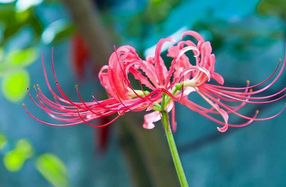- 阅读
- 阅读
- 技巧
- 百科
- 试题
- 文化
- 技能
Message from Ms. Audrey Azoulay, Director-General of UNESCO, on the Occasion of World Poetry Day
教科文组织总干事奥德蕾·阿祖莱世界诗歌日致辞
22 March 2020
2020年3月22日
Just as the novelist Franz Kafka wrote, "A book must be the axe for the frozen sea inside us", so Stanford professor John Felstiner asks in the title of his book, Can Poetry Save the Earth?
继小说家弗朗茨·卡夫卡提出“好书应如利斧,破开我们内心冰冻的海洋”之后,斯坦福大学教授约翰·费尔斯坦纳在他《诗歌能否拯救地球?》一书中发问:
"Why call on the pleasures of poetry, when the time has come for an all-out response? Response starts with individuals, it's individual persons that poems are spoken by and spoken to. One by one, the will to act may rise within us. Because we are what the beauty and force of poems reach toward, we've a chance to recognize and lighten our footprint in a world where all of nature matters vitally."
“既然已经到了需要全力应对的时刻,为什么还要说起诗歌的乐趣呢?答案始于个体,因为朗诵和倾听诗歌都是由个人完成的。行动的意愿可能会在我们内心渐次升起。正因为诗歌的美和力量所指向的,是我们每一个人,我们才有机会在一个自然万物皆不可或缺的世界里辨识并减轻自己的足迹。”
Arranged in words, coloured with images, struck with the right meter, poetry has a power that has no match. This is the power to shake us from everyday life and the power to remind us of the beauty that surrounds us and of the resilience of the human spirit.
以文字为结构,以意象为色彩,以韵律为节奏,诗歌具有无与伦比的力量。诗歌将我们从日常生活中唤醒,去领略我们周边存在的各种美好,去体悟人类共有的不屈不挠的精神。
This year, as we mark the end of the United Nations Decade on Biodiversity and the beginning of the United Nations International Year of Plant Health, UNESCO is honouring past and present poets who stand for biodiversity and the conservation of nature.
今年,在我们纪念“联合国生物多样性十年”结束及“联合国国际植物健康年”开始之际,教科文组织向古往今来倡导捍卫生物多样性和保护自然的诗人们致敬。
If the conservation of biodiversity is a new societal theme, the call to the appreciation of the beauty of nature has been a constant for poets for thousands of years. Love, death and nature are perhaps the most common themes in poetry. Poets have long recognized and honoured the profound association between human emotions and the richness of the surrounding environment – from Garcilaso de la Vega to Victor Hugo, Alexander Pushkin and Sarojini Naidu.
尽管保护生物多样性是一个全新的社会议题,诗人们对体悟自然之美的召唤却已历经数千年。爱情、死亡和大自然,也许是诗歌中最常见的主题。从加西拉索·德拉维加到维克多·雨果、亚历山大·普希金和萨罗吉尼·奈杜,诗人们长期以来都体认并礼赞人类情感与周边万物之间的深刻关联。

More recently, poets have begun using their cultural memory and ecological concerns to stand as witnesses to climate change. Through their work, these ecopoets place natural and cultural heritage at the centre of political debate, as a question of survival. This link between indigenous knowledge and the protection of ecosystems is powerfully expressed by the contemporary Mapuche poet Elicura Chihuailaf:
最近,诗人们开始利用自己的文化记忆和对生态的关注,书写见证气候变化的诗篇。这些生态诗人通过自己的作品,将自然和文化遗产置于政治辩论的中心,视之为关乎生死存亡的问题。当代马普切诗人雷古扎·奇瓦伊拉芬有力地表达了土著知识与生态系统保护之间的联系:
I then learn the names of the flowers and the plants
我于是知晓了花草的名字
The insects perform their function
昆虫也在各司其职
Nothing is superfluous in this world
世上没有多余之物
The universe is a duality:
宇宙是二元存在:
The good doesn't exist without the bad.
没有恶就没有善。
The Earth doesn't belong to the people
地球不属于人类
Mapuche means People of the Earth
马普切意为“大地的子民”
Poetry lies at the heart of who we are as women and men, living together today, drawing on the heritage of past generations, custodians of the world for our children and grandchildren. By celebrating poetry today, we celebrate our ability to join together to fight for biodiversity as "a common concern of humankind" and an integral part of the international development process.
诗歌体现了我们的本质存在,今天生活在一起的我们,依托着祖辈的遗产,为我们的子孙后代守护着这个世界。值此世界诗歌日,通过礼赞诗歌,我们也礼赞人类联合起来共同捍卫生物多样性的能力,因为生物多样性是“人类的共同关切”,也是国际发展进程不可或缺的组成部分。
参与评论